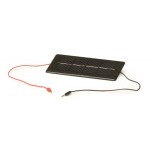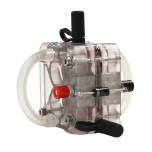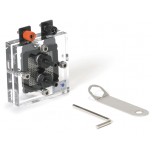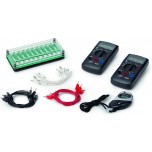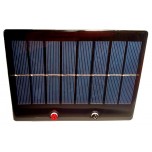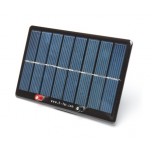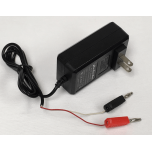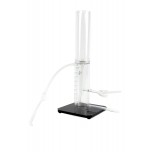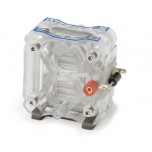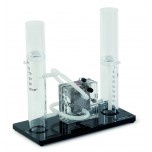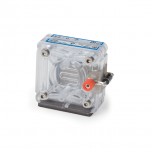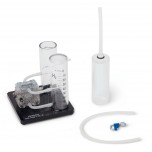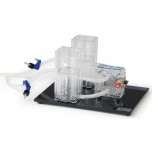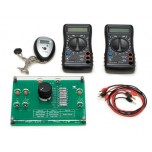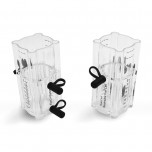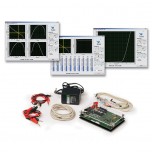Electrolyzer 230
H-TEC's Electrolyzer 230 is a seven-cell PEM electrolyser stack with water storage tank mounted on a black base plate, for the production of hydrogen. The water required for electrolysis is supplied from below through a distribution pipe. The oxygen generated escapes through the water tank. The Hydrogen produced is collected through a connecting pipe, and is delivered to the hydrogen outlet.
There are seven cells within the Electrolyzer 230, each with an electrode area of 16cm2.
The electrolyzer provided in this set is maintenance-free. However, always remember to use fresh, distilled water each time and to drain the water from the storage tanks after use.
• Hydrogen Production Rate: 230 cm3/min
• Oxygen Production Rate: 115 cm3/min
• Hydrogen Storage Volume: 80 cm3/min
• Oxygen Storage Volume: 40 cm3/min
• Power Consumption: 65 Watts at 14 VDC
• Permissible Operating Voltage: 0 - 14 VDC
• Permissible Operating Current: 0 - 4.7 A
• Permissible Operating Pressure: 0 - 5 mbar
• Electrode Area: 7 cells at 16cm2 each
• Operating Medium: Distilled Water
• Dimensions (H x W x D): 9.9" x 13" x 7.9" (250 x 330 x 200 mm)
• Weight: 4.1 pounds (1,850 g)
The growing significance of PEM electrolyzers mirrors the development of fuel cells. Electrolyzers generate the hydrogen required by fuel cells from water in an environmentally conscious manner. The electrical energy required for this purpose can be gained from renewable sources such as solar cells, wind farms or hydroelectric plants.
Water reacts in the electrolyzer under the influence of electrical energy according to the following formula: 2H2O = 2H2 + O2. This process takes place in the MEA (membrane electrode assembly). The MEA consists of the cathode, the anode, and a special polymer membrane (PEM) which is permeable to protons but which presents a barrier to electrons. Your h-tec electrolyzer functions on the PEM principle. The gases produced can be collected in storage tanks. The energy stored in chemical form in the gases can be converted back to electrical energy in a fuel cell as and when required.
Write a review
Your Name:
Your Review: Note: HTML is not translated!
Rating: Bad Good
Enter the code in the box below:






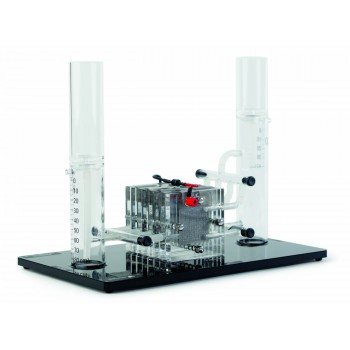

 H-TEC Education E207 Electrolyzer 230 Manual
H-TEC Education E207 Electrolyzer 230 Manual